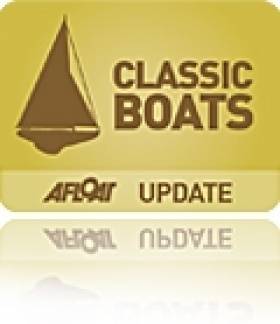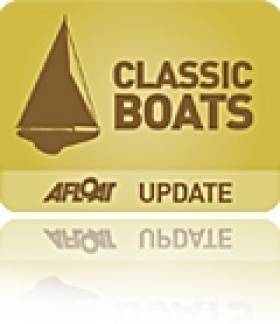Displaying items by tag: Grandfather Canoe
Canadians Lobby To Keep 'Grandfather Canoe' Amid Ownership Fears
#HistoricBoats - A Canadian community descended from the builders of the world's oldest birchbark canoe have expressed concern that the vessel may be returned to Ireland, according to The Irish Times.
As previously reported on Afloat.ie, the 'Grandfather Canoe', or Akwiten, was crafted by the Mailseet First Nation in Canada's Maritimes for use on the St John River valley in New Brunswick under British colonial rule almost 200 years ago.
A programme for RTÉ Radio's Documentary on One strand in August explained how the canoe later passed into the ownership of British army captain Stepney St George, who took it home to Headford Castle, from where it was later bequeathed to NUI Galway.
In the 2000s the canoe was rediscovered and after a First Nations campaign, in 2009 it was repatriated and presented to the Beaverbrook art gallery in New Brunswick, where it is presently in storage without exhibition space.
It has lately emerged that the historic vessel's current ownership status is unclear, prompting fears that it may be sent back to the City of the Tribes.
Members of the Mailseet community are now lobbying for the right to care for and exhibit what is a "spiritual and cultural artefact" to their people.
The Irish Times has more on the story HERE.
#HistoricBoats - The discovery of a traditional anadian river canoe in the rafters of a Galway building sparked an investigation by radio documentary maker Joe Kearney that goes back some 200 years to Ireland's deep connections with the New World.
The 'Grandfather Canoe' – or Akwiten, to give its native name – was originally crafted by the Mailseet First Nation of New Brunswick in Canada's Maritimes, a people who have made and paddled canoes along the St John River for thousands of years.
In his programme for RTÉ's Documentary on One strand, Kearney charts the history of Akwiten from its days on the St John to its removal to Headford Castle in Co Galway by British army captain Stepney St George, its bequeathal to NUI Galway amid the turmoil of post-famine Ireland, and its and eventual – and surprising – rediscovery.































































